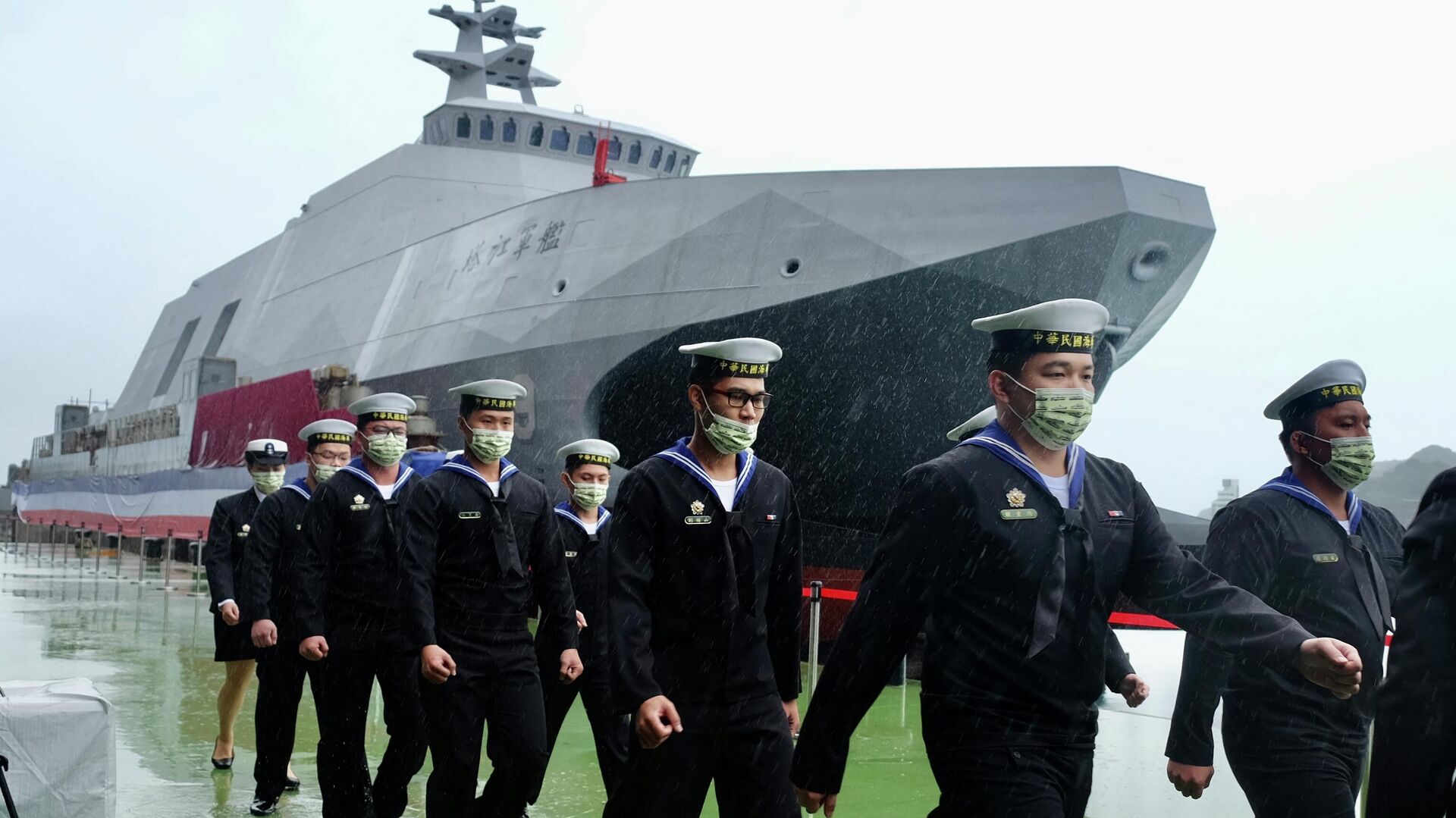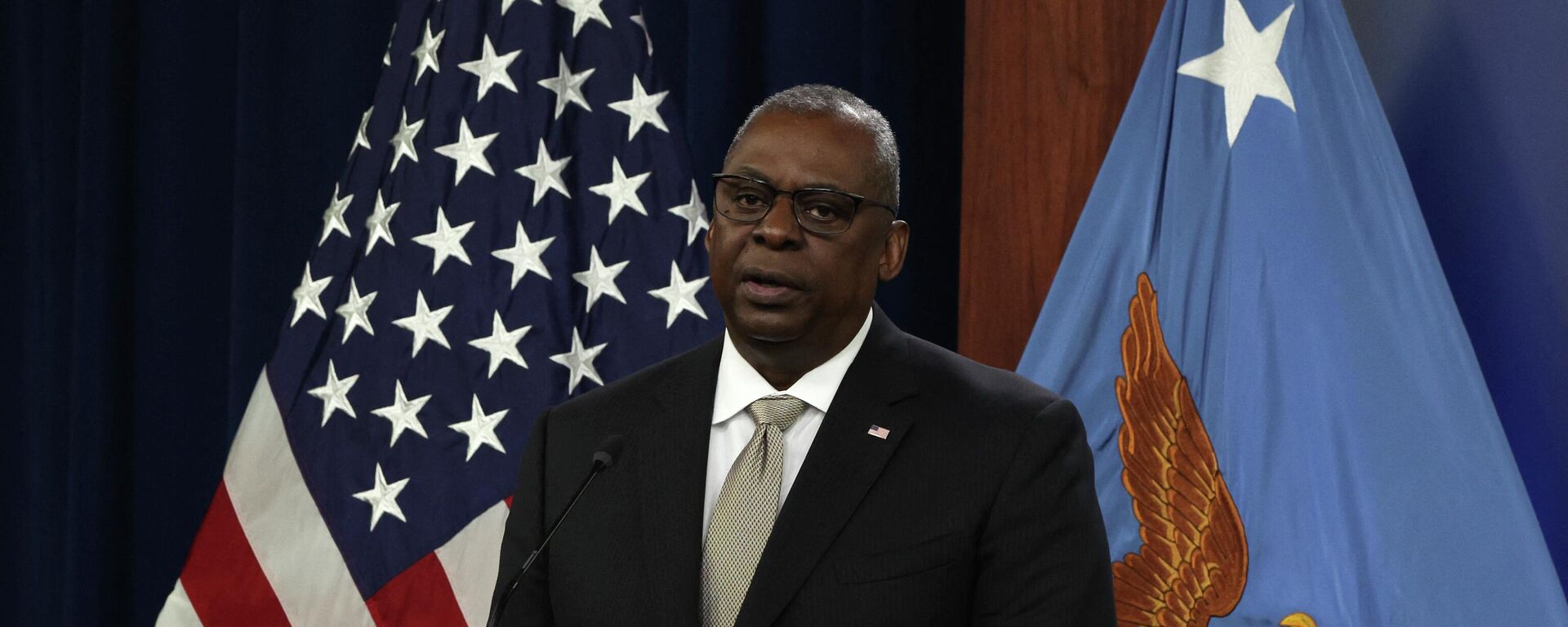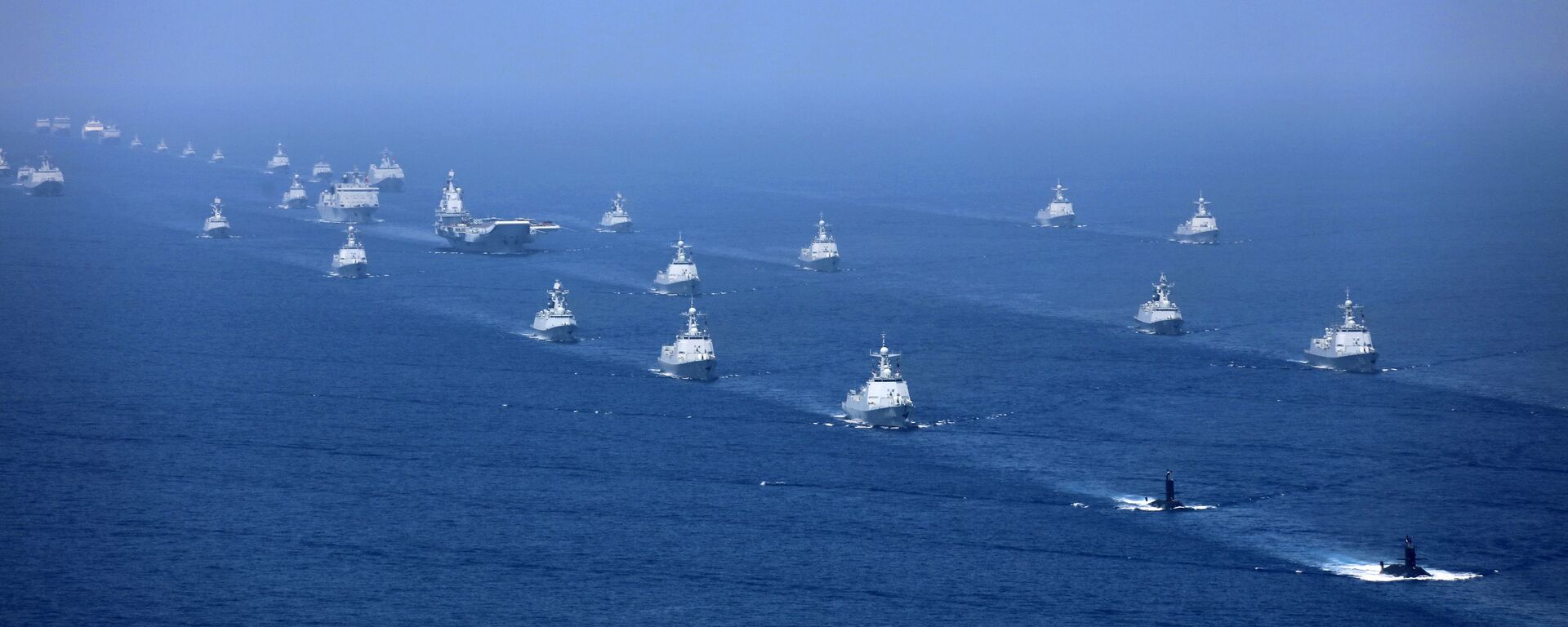https://sputnikglobe.com/20220616/taiwan-has-potential-to-attack-beijing-with-cruise-missiles-lawmaker-says-amid-simmering-tensions-1096380478.html
Taiwan Has Potential to ‘Attack Beijing’ With Cruise Missiles, Lawmaker Says Amid Simmering Tensions
Taiwan Has Potential to ‘Attack Beijing’ With Cruise Missiles, Lawmaker Says Amid Simmering Tensions
Sputnik International
Late last week, Beijing made it clear that if anyone “dares to split Taiwan from China, the Chinese Army will definitely not hesitate to start a war no matter... 16.06.2022, Sputnik International
2022-06-16T14:42+0000
2022-06-16T14:42+0000
2023-06-19T12:44+0000
china
missiles
special operation
relations
taiwan
https://cdn1.img.sputnikglobe.com/img/07e6/06/10/1096378243_0:161:3071:1888_1920x0_80_0_0_9dbdc40a01c150a674d76f2b1beb1635.jpg
The president of Taiwan’s Legislative Assembly, You Si Kun, has warned that his country would not hesitate to use supersonic cruise missiles should China invade the island.The missile’s newer variant reportedly has an extended range of 1,200 miles (1,900 km), which means it could theoretically strike Beijing, which is located roughly 1,150 miles (1,800 km) from Taiwan.The Legislative Assembly president also invoked Russia’s on-going special operation in Ukraine, promising fierce resistance.You’s words come after Washington backed Taipei’s assertion that the Taiwan Strait, which separates the island from China, is an international waterway.Speaking to Reuters on Tuesday, US State Department spokesman Ned Price argued that “the Taiwan Strait is an international waterway, meaning that the Taiwan Strait is an area where high seas freedoms, including freedom of navigation and over-flight, are guaranteed under international law”.His remarks came in response to the Chinese Foreign Ministry arguing that it has sovereign and administrative rights to the Taiwan Strait on Monday.Beijing spokesman Wang Wenbin insisted that the Taiwan Strait fell within China’s territorial waters and exclusive economic zone as defined by the UN Convention on the Law of the Sea (UNCLOS) and domestic law.Taiwan, officially known as the Republic of China (ROC), severed all ties with mainland China in 1949 in the wake of the Chinese Civil War, in which Mao Zedong's communist forces of the People's Republic of China (PRC) defeated the Kuomintang nationalists and forced them to flee to the island.With both the ROC and the PRC claiming to be the legitimate government, the UN recognised the PRC as the one and only legal Chinese representative in 1971. China considers Taiwan an integral part of the PRC, sticking to a policy of peaceful reunification under a "One China - Two Systems" model.Although the US does not have formal diplomatic relations with Taiwan, Washington maintains a representative office in Taipei and remains the island's biggest supplier of military hardware.Tensions are fuelled, however, by the US repeatedly sending warships to the Taiwan Strait, with Beijing dubbing such missions provocations and slamming Washington as "the destroyer of peace and stability" and "a security risk creator” in the region.
https://sputnikglobe.com/20220611/pentagon-chief-says-us-set-to-beef-up-taiwans-military-despite-promise-to-uphold-status-quo-1096215310.html
https://sputnikglobe.com/20220602/china-to-conduct-military-exercises-off-taiwan-with-worst-case-scenario-in-mind-report-says-1095941083.html
china
taiwan
Sputnik International
feedback@sputniknews.com
+74956456601
MIA „Rosiya Segodnya“
2022
Oleg Burunov
https://cdn1.img.sputnikglobe.com/img/07e4/09/0b/1080424846_0:0:2048:2048_100x100_80_0_0_3d7b461f8a98586fa3fe739930816aea.jpg
Oleg Burunov
https://cdn1.img.sputnikglobe.com/img/07e4/09/0b/1080424846_0:0:2048:2048_100x100_80_0_0_3d7b461f8a98586fa3fe739930816aea.jpg
News
en_EN
Sputnik International
feedback@sputniknews.com
+74956456601
MIA „Rosiya Segodnya“
Sputnik International
feedback@sputniknews.com
+74956456601
MIA „Rosiya Segodnya“
Oleg Burunov
https://cdn1.img.sputnikglobe.com/img/07e4/09/0b/1080424846_0:0:2048:2048_100x100_80_0_0_3d7b461f8a98586fa3fe739930816aea.jpg
china, missiles, special operation, relations, taiwan
china, missiles, special operation, relations, taiwan
Taiwan Has Potential to ‘Attack Beijing’ With Cruise Missiles, Lawmaker Says Amid Simmering Tensions
14:42 GMT 16.06.2022 (Updated: 12:44 GMT 19.06.2023) Late last week, Beijing made it clear that if anyone “dares to split Taiwan from China, the Chinese Army will definitely not hesitate to start a war no matter the cost”.
The president of Taiwan’s Legislative Assembly, You Si Kun, has warned that his country would not hesitate to use supersonic cruise missiles should China invade the island.
In an interview with Taiwanese press, You claimed that the Yung Fend missiles “can already hit" the Chinese capital, and that Taiwan "has the ability to attack Beijing".
The missile’s newer variant reportedly has an extended range of 1,200 miles (1,900 km), which means it could theoretically strike Beijing, which is located roughly 1,150 miles (1,800 km) from Taiwan.
The Legislative Assembly president also invoked Russia’s on-going special operation in Ukraine, promising fierce resistance.
“The [Chinese Community Party] must cross the Taiwan Strait to attack Taiwan, which is different from Russia’s attack on Ukraine. If you want to land, you will fight on the beachhead. If the landing is successful, everyone in Taiwan must be as determined to die as [in] Ukraine. Go out and never let China swallow Taiwan”, he asserted.
You’s words come after Washington backed Taipei’s assertion that
the Taiwan Strait, which separates the island from China, is an international waterway.
Speaking to Reuters on Tuesday, US State Department spokesman Ned Price argued that “the Taiwan Strait is an international waterway, meaning that the Taiwan Strait is an area where high seas freedoms, including freedom of navigation and over-flight, are guaranteed under international law”.
Price reiterated Washington’s concerns over Beijing’s “aggressive rhetoric and coercive activity regarding Taiwan”, pledging that the US “would continue to fly, sail and operate wherever international law allows, and that includes transiting through the Taiwan Strait”.
His remarks came in response to the Chinese Foreign Ministry arguing that it has sovereign and administrative rights to the Taiwan Strait on Monday.
Beijing spokesman Wang Wenbin insisted that the Taiwan Strait fell within China’s territorial waters and exclusive economic zone as defined by the UN Convention on the Law of the Sea (UNCLOS) and domestic law.
“China enjoys sovereign rights and jurisdiction over the Taiwan Strait, while respecting the legitimate rights of other countries in the relevant maritime areas”, Wang underscored.
Taiwan, officially known as the Republic of China (ROC), severed all ties with mainland China in 1949 in the wake of the Chinese Civil War, in which Mao Zedong's communist forces of the People's Republic of China (PRC) defeated the Kuomintang nationalists and forced them to flee to the island.
With both the ROC and the PRC claiming to be the legitimate government, the UN recognised the PRC as the one and only legal Chinese representative in 1971. China considers Taiwan an integral part of the PRC, sticking to a policy of peaceful reunification under a "One China - Two Systems" model.
Although the US does not have formal
diplomatic relations with Taiwan, Washington maintains a representative office in Taipei and remains the island's biggest supplier of military hardware.
Tensions are fuelled, however, by the US repeatedly sending warships to the Taiwan Strait, with Beijing dubbing such missions provocations and slamming Washington as "the destroyer of peace and stability" and "a security risk creator” in the region.






